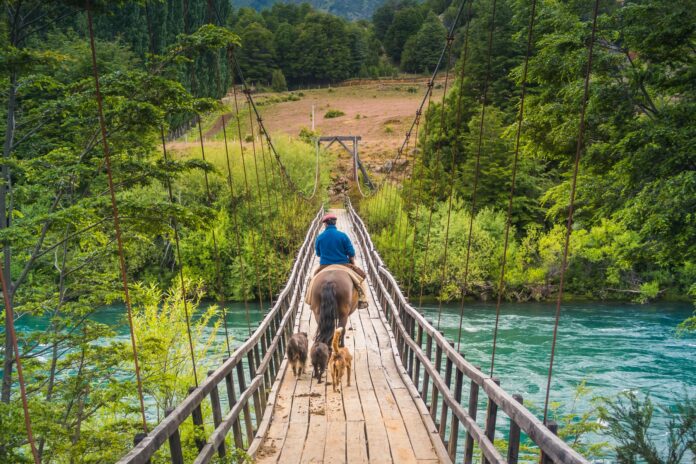Developing your social skills should be your number one priority while traveling. Your ability to strike up conversations with complete strangers and make friends would be a great help too.
Knowing how to budget your travel expenses can allow you to see the world without breaking the bank or waiting to win the lottery. These days, you don’t even need to take leave to go on holiday – there is a wide variety of best webcam software out there, so you can pick the one that best suits your needs to allow you to attend calls and meetings while on the road.
Here are some tried-and-tested travel tips for beginners for vacationing on a modest budget.
1. Pre-book your airline tickets
This is particularly important for round-trip tickets; it’s not a good idea to run out of money while traveling and not have a firm plan for getting home. Airlines release their flight tickets as early as a year in advance and prices increase as time goes on, especially in the last month before departure.
2. Use sustainable modes of transport
Climate change is one of the gravest risks to the future of tourism, but the travel industry is a major contributor, responsible for about 8% of global carbon emissions. However, there are additional strategies to lessen the impact your trip has on the environment besides just taking it easy on the gas pedal.
The majority of the greenhouse gas emissions caused by tourism come from transport modes like flying and driving. Though all forms of transportation consume energy, some are more economical and environmentally friendly than others. It matters how you get to and around your destination.
Most of the time, cars and planes are the least productive ways to travel. To lessen your carbon footprint and take in the sights on shorter trips, consider taking a train or a coach. It may even be more cost-effective to take public transport or rent a bike once you reach your destination, rather than hiring a car. Many cities offer discount cards and day passes for travel on urban buses, trams and trains, while others have made public transport completely free. Some other unique travel tips include renting a more eco-friendly vehicle, such as an electric, hybrid or compact car.
3. Be accommodation-savvy
Avoid spending a fortune on a hotel and instead stay in a hostel shared room. By splitting the cost of a hotel room with other travelers, and by meeting new people in a dorm-style setting, you will save money and have more fun on your next adventure.
Choose destinations that allow you to stay with a local family or individual at a reduced cost. Not only will this save you money, but it will also give you a true taste of what it’s like to live like a local. Utilize the fact that you may well have a built-in tour guide in the form of your host; they will likely have tons of recommendations for local restaurants and attractions.
The other option is to stay with a friend or relative. If you have a distant cousin or old classmate that you’d like to reconnect with, consider paying them a visit or planning a trip to their hometown.
4. Consider off-peak travel
Don’t take vacations while schools are out of session since that’s when airlines and hotels charge exorbitant rates to take advantage of families. Find out when is the best time to visit your destination, and plan your trip accordingly. It’s usually a great time to travel when the sun isn’t shining as brightly but the weather is still fine. During this time, hotels and airlines often offer special discounted rates to entice guests.
5. Ensure that you hold a valid passport
Do you have a passport? If so, when does it expire? A valid passport is one that has at least six months remaining on it after your intended period of stay, as well as adequate blank pages to allow for visas and stamps. Don’t make the mistake of showing up to the airport with a passport with less than six months remaining, as you will likely be refused boarding – a costly mistake!
If you need a new international passport, you should apply for one at least six weeks before your departure date and ideally as soon as you book your flights and lodging.
6. Find out what kind of visa you need
Number six on our list of best travel tips for 2022 is obtaining the appropriate travel visa. What kind of visa will you need to enter the country you plan to visit? How do you get a travel visa?
Again, don’t put this off until the last minute, as it may take some time for the visa to come through – requirements and lead times vary depending on the country and nationality involved. The price also depends on the country, so make sure you are aware of the cost in advance.
7. Create extra copies of important documents
It’s common to misplace vital travel paperwork when making preparations. Confirmation emails should be printed and filed away in a folder in your online email account for easy access in the future. It’s a good idea to have someone you trust at home keep a copy, and if you’re taking a trip with a companion, you should both bring copies with you. Lastly, you should print out important travel documents in case you need to refer to them and can’t get online.
8. Support local businesses
The decline in tourism during the pandemic has had a devastating impact on many local economies. Spending money locally is a great way to aid in the recovery of a community.
Tourism benefits host towns most when visitors spend money inside the community. Instead of staying in hotels run by foreigners or by international chains, think about staying in homestays and guesthouses.
Go to a restaurant in the area and enjoy a meal featuring regional specialties. Have some fun venturing outside your comfort zone and shopping at the local market by picking up some spices from a farm nearby or some handcrafted jewelry from a nearby artisan.
Spend time with knowledgeable locals by joining up for free walking tours or surfing lessons with a resident pro. Pick a tour company that uses local vendors if you’re going the packaged route.
Image Source – Wooden-bridge-at-Futaleufu_Patagonia_Guaxinim_Shutterstock.jpg
Escape the ordinary and discover the extraordinary! From bustling cities to serene landscapes, every journey begins with a single step—let us guide yours. Enjoy curated itineraries, hidden gems, and hassle-free bookings designed for explorers at heart. Whether it's a weekend getaway or a globe-trotting adventure, your Next unforgettable experience is just a click away.










